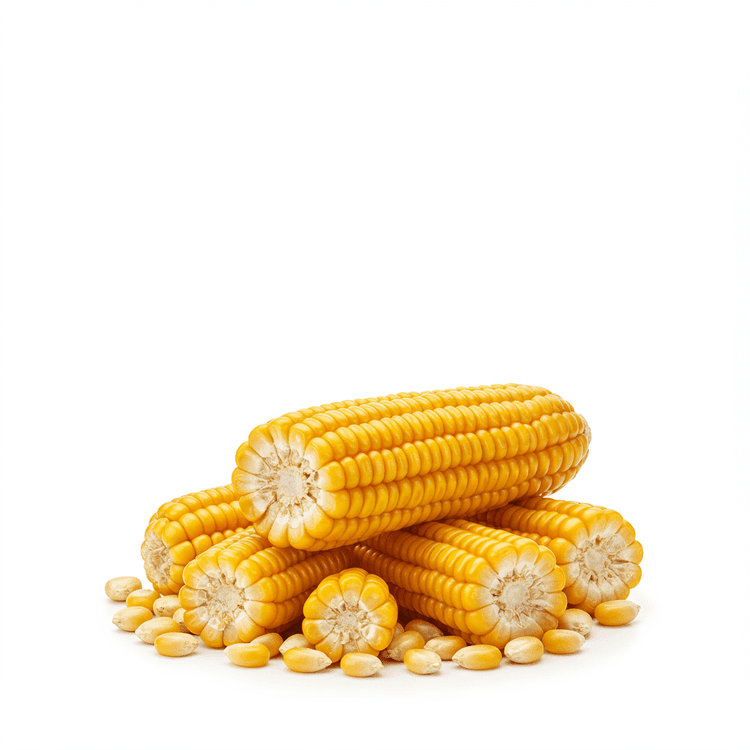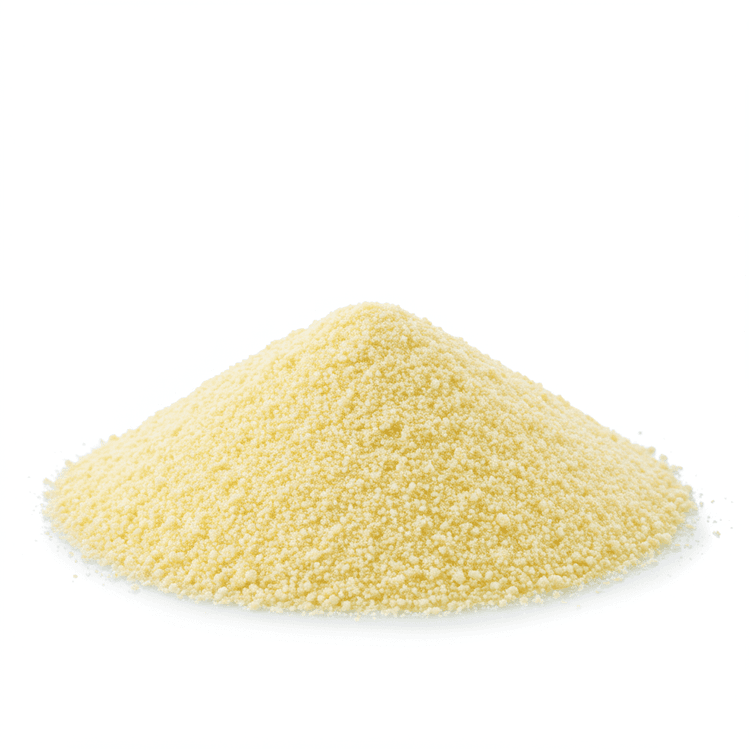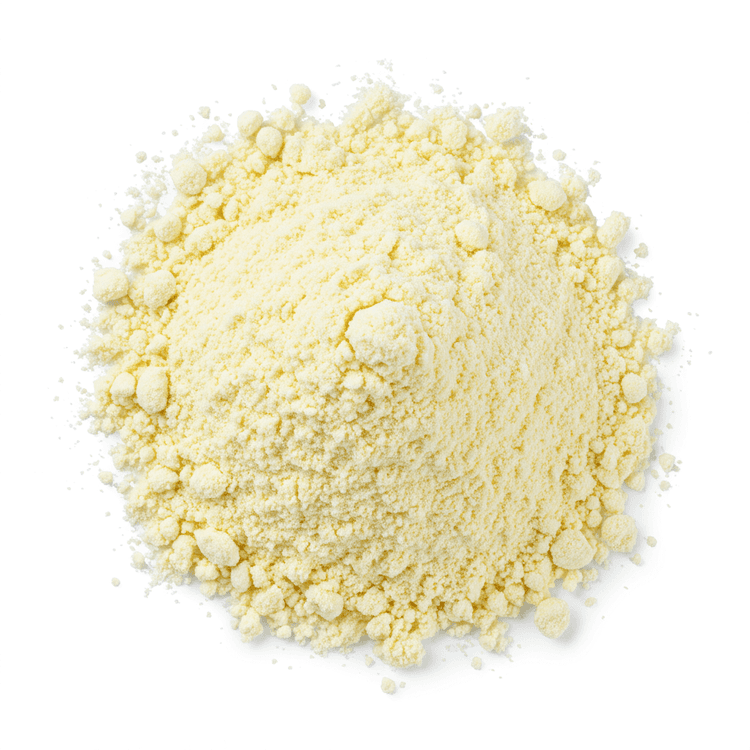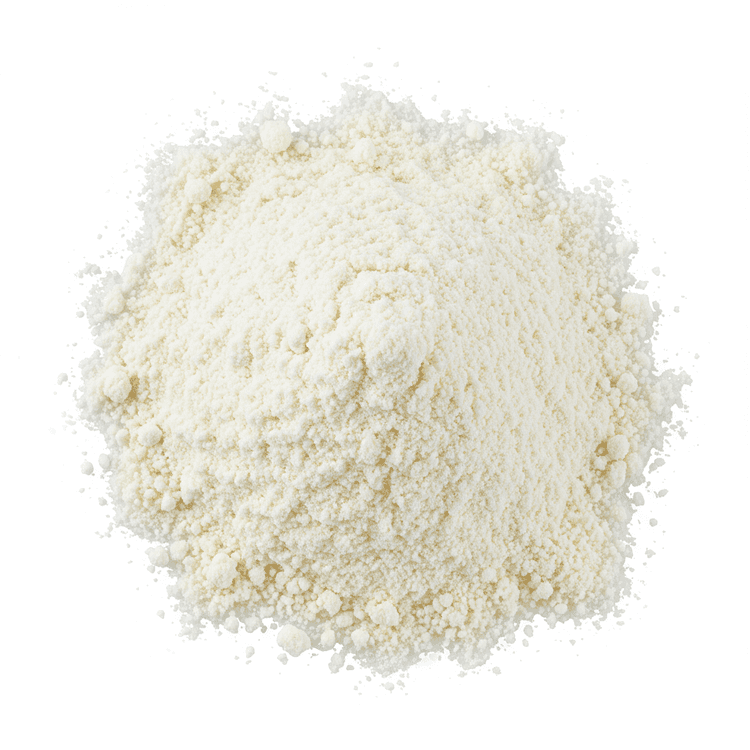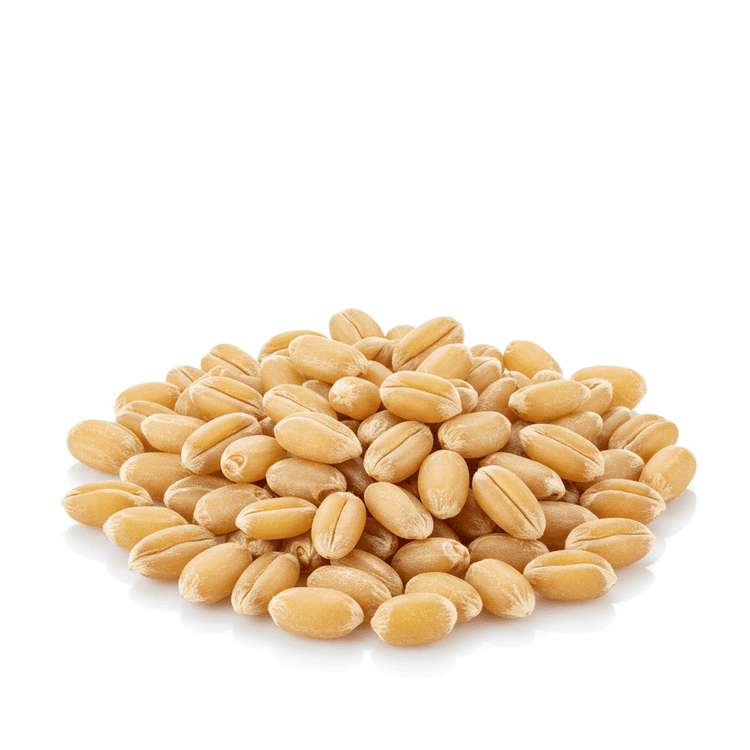
Grits
Grits are a coarsely ground cornmeal, typically made from hominy – corn that has been treated with an alkali. They have a subtly sweet, slightly earthy flavor and a creamy, porridge-like texture when cooked. Available in various grinds, from coarse to fine, grits range in color from white to yellow, depending on the corn used. Often associated with Southern cuisine, grits are a versatile and comforting base for savory or sweet dishes. Look for stone-ground grits for a more robust flavor and texture, ideal for a truly authentic Southern experience.
Common Uses
- Grits are commonly served as a creamy breakfast porridge, often topped with butter, cheese, or gravy. Think of them as a Southern alternative to oatmeal or polenta.
- They serve as a versatile side dish alongside savory entrees like shrimp, chicken, or fish. The creamy texture complements a wide range of flavors.
- Grits can be used as a base for savory bowls, topped with vegetables, meats, and sauces. This allows for endless customization and flavorful combinations.
- Cooled and sliced grits can be pan-fried or grilled for a crispy exterior and creamy interior. This provides a delightful textural contrast.
- Grits are incorporated into baked goods like breads, muffins, and cakes, adding a unique texture and subtle corn flavor. This is an ideal option for gluten-free baking.
- They also serve as a thickening agent for soups and stews, adding body and a subtle corn flavor. Consider using fine-ground grits for this application.
Nutrition (per serving)
Nutrition (per serving)
Calories
151.0kcal (7.55%)
Protein
3.5g (6.98%)
Carbs
31.9g (11.6%)
Sugars
0.5g (1%)
Healthy Fat
0.5g
Unhealthy Fat
0.1g
% Daily Value based on a 2000 calorie diet
Nutrition (per serving)
Calories
151.0kcal (7.55%)
Protein
3.5g (6.98%)
Carbs
31.9g (11.6%)
Sugars
0.5g (1%)
Healthy Fat
0.5g
Unhealthy Fat
0.1g
% Daily Value based on a 2000 calorie diet
Health Benefits
- Excellent source of complex carbohydrates for sustained energy
- Rich in iron, supporting healthy red blood cell production and energy levels
- Contains folate, important for cell growth and development, especially during pregnancy
- May help improve digestive health due to its fiber content
- Provides antioxidants that help protect against cell damage
- Naturally gluten-free, making it suitable for individuals with celiac disease or gluten sensitivity
Chefadora AI is here.
Experience smarter, stress-free cooking.
Storage Tips
Store uncooked grits in an airtight container in a cool, dry, and dark place, like a pantry, to maintain their quality and prevent them from absorbing moisture or odors. Properly stored, they can last for up to a year or longer. Cooked grits should be refrigerated promptly in an airtight container and consumed within 3-4 days. Freezing cooked grits is also an option; portion them into freezer-safe bags or containers and freeze for up to 2-3 months. Thaw in the refrigerator before reheating.
Marnirni-apinthi Building, Lot Fourteen,
North Terrace, Adelaide, South Australia, 5000
Australia

